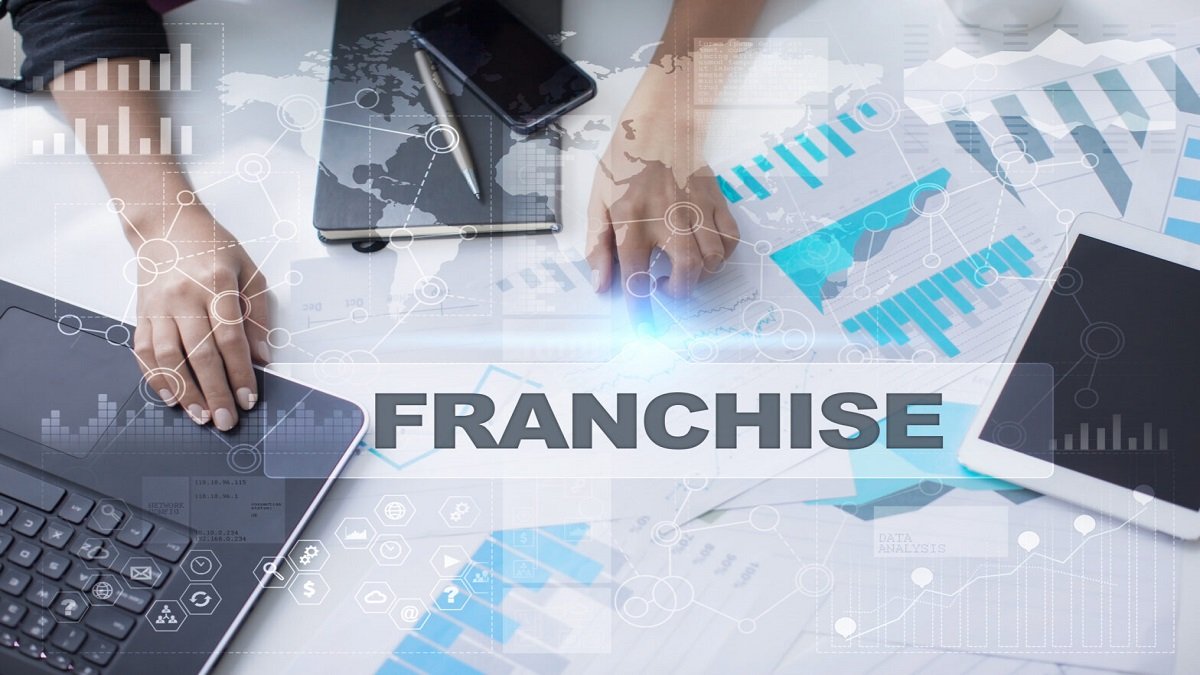One of the things you should think about and ask yourself when starting a business is whether you have reasons to buy a franchise business or an independent enterprise. In addition to its many benefits, franchising has drawbacks for both franchisors and franchisees.
You must evaluate all of the advantages of franchising as well as any possible hazards when deciding whether or not to become associated with one. We’ll go over these benefits and drawbacks in this article to help you choose whether franchising is the best course of action for you.
Advantages Of A Franchise Business

1. Assistance
The business support that the franchisor provides to the franchisee is one of the reasons to buy a franchise business. The franchisee may obtain practically a turnkey business operation, depending on the conditions of the franchise agreement and the organization of the firm.
They could be given everything they need to run the company, including the advertising strategy, materials, equipment, and brand. All franchises provide the franchisor’s expertise and experience, even though other franchisees might not offer everything.
The franchisee gets access to a wealth of business support to help them navigate the process of owning and running a business, whether that support is in the form of a phone number to contact the franchisor directly or is kept in a searchable digital knowledge base. Compared to beginning a firm from scratch, this expertise makes it far easier to operate a successful company.
2. Brand Recognition
Brand recognition is one of the most significant advantageous steps to buy a franchise business. When starting a business from scratch, building your brand and establishing a loyal customer base can take a substantial amount of time and effort. You would need to invest heavily in marketing, promotions, and consistently delivering quality products or services to gain trust and recognition within your target market.
This process can be slow and costly, with no guarantee of success. In contrast, franchising offers the benefit of working with an already established brand. Successful franchises have spent years building a reputation and customer loyalty. When you start a franchise, you’re able to leverage this brand recognition, allowing potential customers to instantly recognize your business.
People are often familiar with the franchise’s name, offerings, and values, which makes them more likely to trust and engage with your business from the outset. This built-in customer base significantly reduces the time and effort needed to establish credibility in the market.
3. Reduced Failure Rate
Franchises typically have a lower failure rate compared to sole proprietorships due to the built-in support system and established brand reputation. When an individual invests in a franchise, they become part of a larger network that offers guidance, training, and ongoing assistance. This support significantly reduces the risks associated with starting a business from scratch.
Franchisees benefit from proven business models, which have already demonstrated their profitability and market demand. By following a blueprint that has been successfully replicated, franchise owners can avoid many of the pitfalls that independent business owners face. Additionally, franchises often come with recognizable branding, which helps attract customers more easily.
The products or services offered by franchises are typically well-known and trusted, making it easier to gain market traction. Overall, the combination of a proven business model, strong brand recognition, and ongoing support makes franchises a safer and more reliable entrepreneurial venture. It is one of the best reasons to buy a franchise business.
4. Buying Power
One of the key reasons to buy a franchise business is the significant purchasing power that comes with being part of a large network. When running an independent business, owners often have to buy materials or products in smaller quantities, which drives up the cost per item. This can reduce profit margins and make it harder to remain competitive.
In contrast, franchise networks benefit from bulk purchasing. Since franchisees collectively place large orders, they can access substantial discounts and better pricing on supplies, equipment, and inventory. The franchisor, representing the entire network, can negotiate favorable agreements with suppliers, securing lower prices and better terms for all franchise owners.
As the cost of goods decreases, the overall operating expenses for each franchisee are reduced, increasing profitability. This cost efficiency gives franchisees a competitive edge over independent businesses, allowing them to offer better prices to customers while maintaining healthier profit margins.
5. Profits
Franchises often generate higher revenue and profits compared to independently owned businesses due to their established brand recognition and customer trust. Well-known franchises have already built a strong reputation, making it easier to attract a steady stream of customers.
This built-in popularity reduces the need for extensive marketing efforts, as consumers are already familiar with the brand and its products or services. As a result, franchise owners can experience faster and more consistent sales growth. Moreover, even though some franchises require a substantial initial investment, including a hefty franchise fee, the return on investment tends to be significant.
The proven business model, combined with ongoing support and brand credibility, increases the likelihood of long-term profitability. Franchisees also benefit from the franchisor’s expertise, operational efficiency, and established customer base, which further boosts their chances of financial success. Overall, franchising offers a more reliable and lucrative path to business ownership.
6. Marketing and Advertising
Marketing and advertising are crucial for the success of any business, but they can be expensive and time-consuming, especially for independent entrepreneurs. However, when you invest in a franchise, the franchisor typically handles large-scale marketing efforts, including regional and national campaigns.
This centralized approach saves franchisees both time and money, as they benefit from professionally executed advertising without having to manage it themselves. Franchise owners gain access to proven marketing strategies, professionally designed materials, and established promotional channels, which can significantly boost visibility and customer acquisition.
Additionally, the brand’s existing reputation and widespread recognition help attract customers more quickly, enabling franchisees to launch their business faster and more effectively. This built-in marketing support gives franchise owners a competitive edge and allows them to focus on daily operations rather than struggling with promotional efforts.
7. Take Charge Of Your Own Destiny
One of the greatest beneficial steps to buy a franchise business is the ability to be your boss, and franchising offers this advantage with added support and reduced risk. When you invest in a franchise, you gain the freedom to set your hours, make key business decisions, and shape your professional future.
Unlike starting an independent business, where you face the challenges alone, franchise owners benefit from the franchisor’s extensive knowledge base and ongoing support. This includes access to training, operational guidance, and expert advice, making it easier to navigate the complexities of running a business.
Furthermore, franchises offer the flexibility to establish a better work-life balance, as some models even allow you to work from home. The combination of independence and built-in support reduces the uncertainty and risk typically associated with entrepreneurship, making franchising an appealing option for those seeking both autonomy and stability.
8. Exit Strategy
When it comes time to exit the business, franchising often makes the process of selling smoother and more profitable. Since franchises operate under a recognized brand with a proven business model, they tend to be more attractive to potential buyers. The existing reputation, customer base, and operational framework make the business easier to value and sell.
Unlike independent businesses, which may struggle to prove their profitability or market potential, franchises benefit from standardized processes and financial records, making them more appealing to investors. Additionally, franchisors often provide support during the resale process, helping connect franchisees with qualified buyers.
The consistency and reliability of the franchise system increase the perceived value of the business, making it easier to negotiate favorable terms. As a result, franchise owners are more likely to sell their business at a higher valuation, ensuring a profitable and efficient exit strategy.
Some Disadvantages Of Franchising
While there are many reasons to buy a franchise business, it also comes with certain drawbacks that potential franchisees should consider. One major disadvantage is the lack of full control. Although you own the business, you must adhere to the franchisor’s rules and guidelines. This includes restrictions on pricing, suppliers, and marketing strategies, limiting your ability to make independent decisions.
Moreover, high initial and ongoing costs can be a burden. Franchise fees, royalties, and marketing expenses can be substantial, reducing your overall profits. Unlike independent businesses, franchisees must continuously pay a percentage of their revenue to the franchisor, which can impact long-term profitability.
Another drawback is limited creativity and flexibility. Franchisees are required to follow a standardized business model, leaving little room for innovation. This can be frustrating for entrepreneurs who want to implement their ideas or personalize their business.
Dependency on the franchisor’s reputation is another risk. If the franchisor faces negative publicity or financial issues, it can directly affect all franchisees. Even if your location is performing well, the entire brand’s image could impact your business.
Finally, contractual obligations can be restrictive. Franchise agreements often include lengthy terms and specific conditions, making it difficult to exit the business without financial penalties or legal complications.
Overall, while franchising offers a structured and lower-risk business model, the lack of autonomy, ongoing costs, and dependency on the franchisor can pose significant challenges for some entrepreneurs.
FAQ
Q: What is one of the motivations for a company purchasing a franchise?
A: Brand recognition is one of the main advantages franchisees have when they launch a franchise. Starting a firm from the beginning would need you to develop your clientele and brand from the ground up, which would take time.
Q: What occurs if a franchise doesn’t succeed?
A: Selling the firm to a third party who then becomes the new franchisee for that region is frequently the best course of action for a failing franchise. This enables the failed franchisee to end its responsibilities under any lease and the franchise agreement.
Q: Does operating a business get simpler with franchising?
A: A tried-and-true formula for success is included with franchises. This implies that you’re less likely to run into the unforeseen difficulties that frequently arise when launching a firm from the ground up. You can concentrate on execution rather than trial and error since your roadmap is clear.











